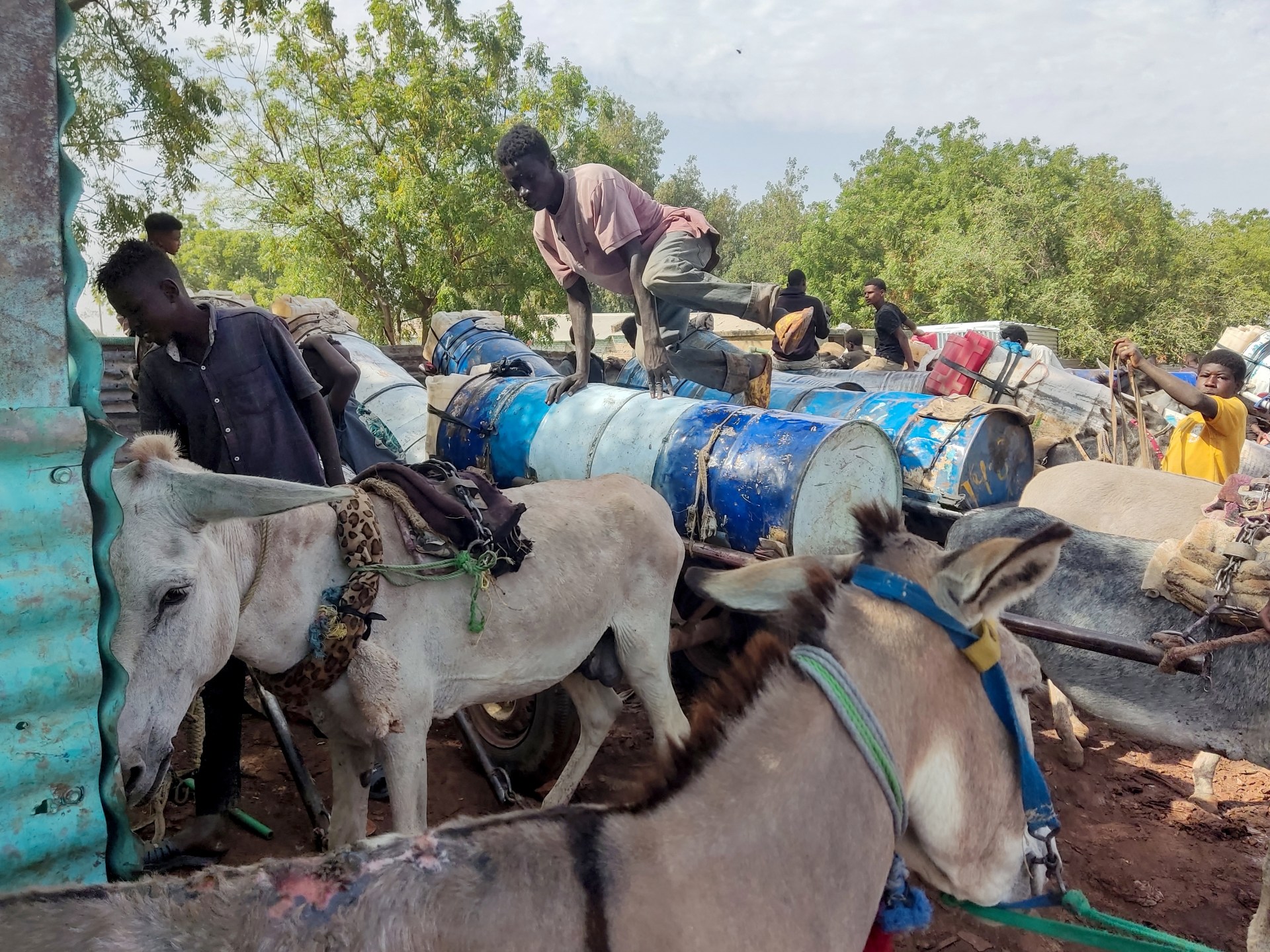Donkey carts transporting people and goods, and temporary water tanks (French)
In the garage designated for ambulances in a hospital in central Sudan, cars and trucks disappeared and were replaced by donkey carts transporting patients in a country that has become lacking in everything more than 10 months after the outbreak of war.
This is how Agence France-Presse began its report, in which it spoke with one of the owners of these carts, who said that “our donkey-drawn carts are the only means of transporting patients to hospitals” in the city of Timboul in Gezira State (south of Khartoum), where the war spread last December between... The army, led by Lieutenant General Abdel Fattah al-Burhan, and the Rapid Support Forces, led by Lieutenant General Muhammad Hamdan Dagalo.
Hussein Ali continues, with apparent pride, “A short while ago, I transported a pregnant woman in labor from a village 15 kilometers away from here in my cart.”
Ali began to play a key role on the roads where armed men had set up checkpoints, while the gas stations were empty and deserted.
The wooden cart pulled by a donkey has become the only means of transportation available for civilians trying to flee the war.
According to the agency, the current conflict has caused tens of thousands of victims, including 10 to 15 thousand dead in one city in Darfur, according to United Nations experts, and led to the displacement of nearly 8 million Sudanese from their homes.
In Gezira State alone, half a million people were displaced, some for the second time, after they sought refuge in Gezira at the beginning of the war to escape Khartoum, where battles broke out on April 15, 2023.
Millions more, who did not have the financial capabilities to pay for transportation, were stuck in their homes, suffering from a shortage of goods, high prices, epidemics, and the complete collapse of the Sudanese currency.
War and high fuel prices prompted people to use these vehicles (French)
Looted gas stations
With 10 months having passed since the start of the war, three-quarters of hospitals are out of service, while the sick and wounded feel abandoned to their fate.
Al-Tahir, who refuses to give his full name, told Agence France-Presse that when “the Rapid Support Forces took control of the area, I hid my bus so they wouldn’t steal it.”
Since then, he abandoned his truck and adopted a donkey-drawn cart, which he travels daily from his village to the city of Rifa'a, located 40 kilometers north of Wad Madani, the capital of the Gezira state.
He adds, "Even if I wanted to use my bus, no gas station is operating in the area anymore."
An employee at a gas station, who requested that his identity not be revealed for fear of being harmed, said that since the arrival of the Rapid Support Forces, the army’s fuel trucks “have no longer supplied any supplies to the stations of the Gezira State.”
The price of a liter of gasoline skyrocketed from $1 to $20.
Like Al-Taher, Babiker bought a donkey cart because he could not “stop working” while “less than 5% of Sudanese can get one full meal a day,” according to the World Food Programme.
Even crossing the border into South Sudan is often done via donkey carts (Associated Press)
The only means of transportation
Babiker knew that he would find many customers. With the siege imposed on most areas by the two camps fighting for power, residents had to leave their villages in search of food, water and medicine.
For example, Bakri Khaled travels 13 kilometers back and forth every day on a donkey cart to reach Tambol Market.
He explained to Agence France-Presse that before the war, the road took a quarter of an hour.
Today, the vehicle covers the same distance in two hours and for twice the price he used to pay for the truck.
As for donkey breeders and traders, their sales have also witnessed a significant increase.
One of them, Abdul Rahman Al-Zein, confirms that the demand is constantly increasing, and says happily, “The prices of donkeys, horses, and carts are rising.”
Source: French

